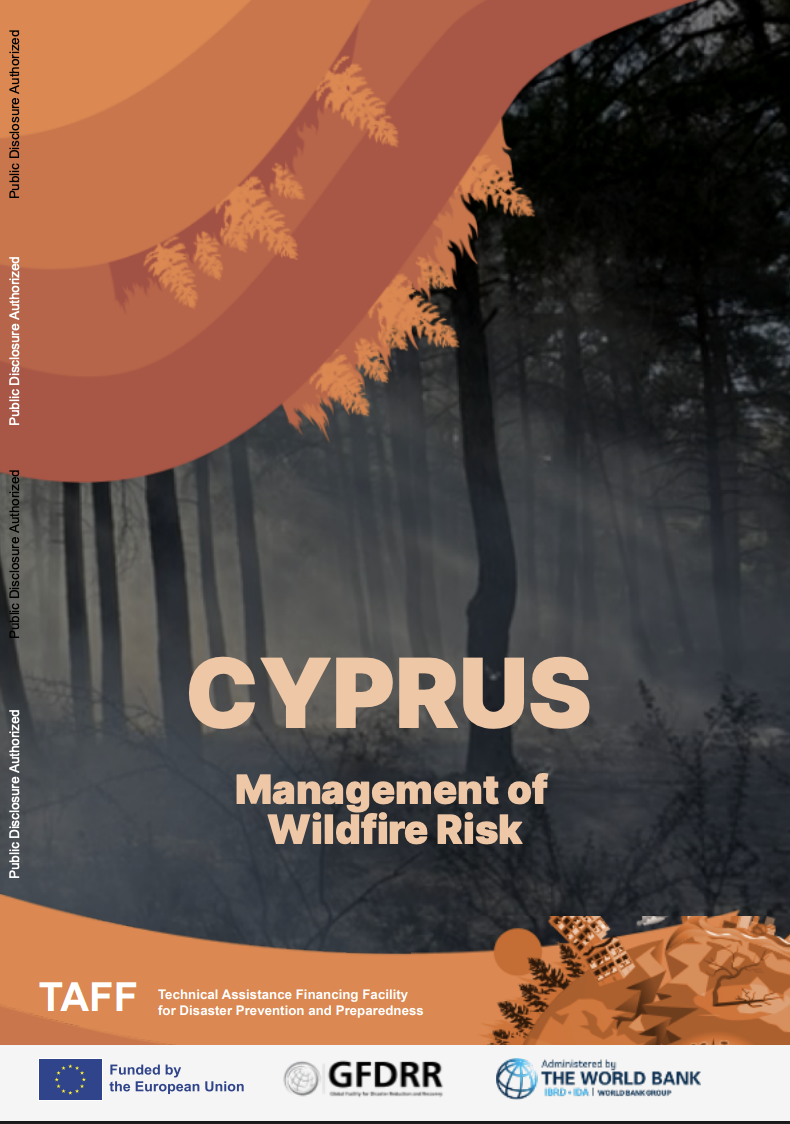The Republic of Cyprus (hereafter referred to as ‘Cyprus’) faces a significant and increasing risk of wildfires, as evidenced by recent large-scale fires. The island is becoming susceptible to extreme weather events, fueled by climate change. Despite being an island of less than 10,000 km², Cyprus ranks second out of 24 European countries in terms of the ratio of burned area to land mass. Wildfires pose a hazard across all regions of Cyprus, with forested areas being particularly at risk, and fire occurrence being frequently recorded in rural areas of the Paphos and Limassol districts. The likelihood of weather conditions leading to wildfires that can cause loss of life and property is estimated to be greater than 50 percent in any given year, with the highest risk between June and August, according to the National Risk Assessment (NRA). This report summarizes the results of a rapid review of wildfire risk and management capacity in Cyprus, highlighting potential risk management priorities to inform policy dialogue and future research. The review considers capacity across multiple dimensions, including governance, understanding wildfire risk, risk reduction and mitigation, early warning and public awareness, preparedness and emergency response, recovery and post-disaster financing, and cross-cutting topics such as social resilience and the role of the private sector. Drawing on available information, each chapter reviews the general context and current arrangements, including key challenges, as well as opportunities for improvement relevant to Cyprus.

